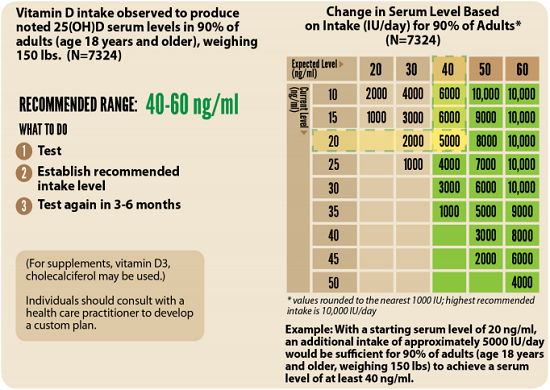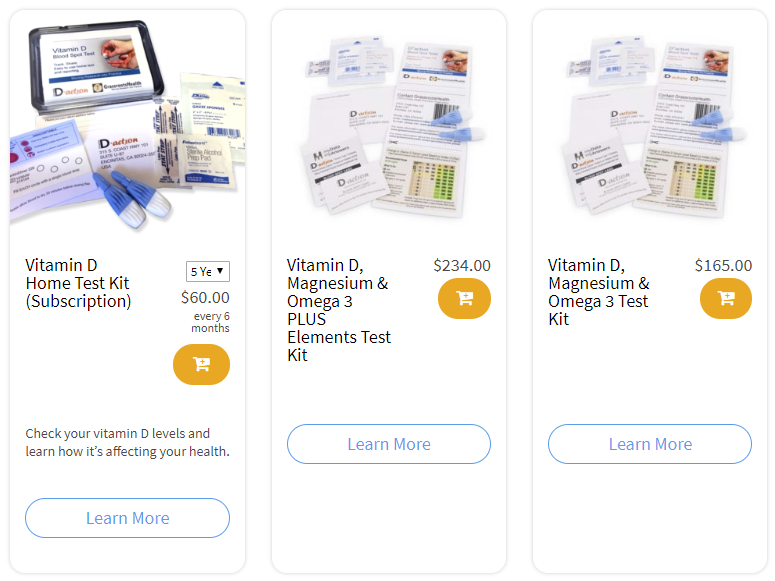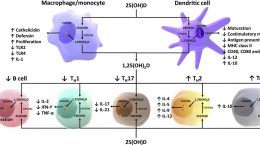Published on May 14, 2020
“Vitamin D may be even more important now than ever,” says Dr. JoAnn Manson, MD, DrPH, of Harvard Medical School and Brigham and Women’s Hospital. Dr. Manson was the lead researcher and author of the VITAL trial and its resulting publications, which focused on the effects of supplemental vitamin D and omega-3s on specific health outcomes, mainly cancer and cardiovascular health. Now, with the current coronavirus epidemic, she is urging everyone to do what they can to avoid vitamin D deficiency, through sun exposure and supplements, due to emerging and growing evidence that vitamin D status may be related to the risk of developing COVID-19 disease and to its severity.
It is known that vitamin D is important to the immune system, for several different reasons, and that it plays a major role in reducing inflammation and regulating cytokine storm events such as those resulting from COVID-19. Additional studies involving cell cultures have documented vitamin D’s effect on respiratory cell function, and there is much existing evidence that patients with respiratory infections tend to have lower vitamin D levels.
Due to the evidence of the association between vitamin D deficiency and COVID-19 disease and severity, all are encouraged to help reduce their risk of vitamin D deficiency by getting regular outdoor sunshine exposure in order to make vitamin D in the skin – as always, be sure not to burn. Also, being physically active while outdoors may boost overall health, and can be done while maintaining social distancing.
Dr. Manson is planning a randomized clinical trial of vitamin D supplementation on reducing the risk and severity of COVID-19. In the meantime, she encourages the use of measures to reduce your risk of vitamin D deficiency, including considering a vitamin D supplement.
GrassrootsHealth Nutrient Research Institute is preparing to do a Community RCT with the use of our myData-myAnswers nutrient health system that over 15,000 people are already using for their health. We will demonstrate how one can use the Nutrient Research Model established by Dr. Robert Heaney to establish the effect of vitamin D serum levels of at least 40 ng/ml (100 nmol/L) on risk reduction with different ethnicities in the population. Please let us know if you’re interested in helping sponsor this project.
How to Reduce the Risk of Vitamin D Deficiency
Whether choosing to get your vitamin D from sun or other sources of UVB exposure or from vitamin D supplements, it is useful to know what your current vitamin D level is. You can order a home vitamin D blood spot test or ask your doctor to measure your vitamin D blood level.
Once you know what your starting vitamin D level is, you can then calculate the additional vitamin D needed on a daily basis to help you reach your target vitamin D level (experts recommend a level of 40-60 ng/ml or 100-150 nmol/L). For example, based on the chart below, which uses data from 7,324 participants in the GrassrootsHealth cohort, with a starting vitamin D level of 20 ng/ml (50 nmol/L), it would take an additional 5,000 IU of vitamin D per day to get 90% of the population to a target level of 40 ng/ml (100 nmol/L). An intake of an additional 2,000 IU per day would only get 90% of the participants to a level of about 30 ng/ml (which might be enough for bone health), but GrassrootsHealth has already demonstrated that to help prevent preterm births, it needs to be 40 ng/ml (100 nmol/L), for 80% reduction in risk of breast cancer to 60 ng/ml (150 nmol/L). As there is a wide variation in response to vitamin D supplementation, testing again after 3-6 months will let you know how your supplement is working for you.
Please refer to our charts with nmol/L and calculations by weight on the download available here, or use our online calculator.
Other Considerations for Immune Health
 Other healthy lifestyle habits and nutrients are also important to consider to help boost your immune system. Sun exposure offers much more beyond vitamin D for immune health, so it is essential to get outside in the sun every day if possible, being careful not to burn. Other nutrients, such as vitamin C, zinc, magnesium, and omega 3s also play essential roles in immune health – plus, all work together to provide the body with what it needs to function optimally.
Other healthy lifestyle habits and nutrients are also important to consider to help boost your immune system. Sun exposure offers much more beyond vitamin D for immune health, so it is essential to get outside in the sun every day if possible, being careful not to burn. Other nutrients, such as vitamin C, zinc, magnesium, and omega 3s also play essential roles in immune health – plus, all work together to provide the body with what it needs to function optimally.
Are you getting enough vitamin D and other important nutrients for your immune health?
Test today to make sure you are getting enough of these essential immune health nutrients. Measure the nutrients mentioned above, including magnesium, vitamin D, and omega-3s, with the Mg*PLUS Test Kit, or add the Essential Elements Panel to measure your levels of zinc, selenium, and other elements, and start taking steps to ensure proper levels of each – give your body the nutrients it needs to stay healthy!
Are You Getting Enough Vitamin D to Help Yourself?
We’re in a time of great crisis that could be greatly affected by making sure you and everyone you know has a serum level of at least 40 ng/ml. Help us help you.
Do you know what your vitamin D level is? Be sure to test today to find out, and take steps to keep it within a target of 40-60 ng/ml or 100-150 nmol/L! Give your immune system the nutrients it needs to support a healthy you and protect yourself from unnecessary diseases.
GrassrootsHealth is moving forward by using science to drive global action, with using either clinical trials with our key researchers or by doing community Field Trials with individuals or other organizations. Please let us know if you are interested and how we can quickly setup your projects.
Through GrassrootsHealth Nutrient Research Institute, you can also test your essential elements magnesium, copper, zinc and selenium, toxins such as lead, mercury and cadmium, as well as your omega-3 levels, inflammation levels and thyroid stimulating hormone (TSH) level. Find out your levels today! Log on to the test selection page (click the link below) to get your tests and see for yourself if your levels can be improved.
Make sure you track your results before and after, about every 6 months!
Click Here to Access the Test Page
How can I track my nutrient intake and levels over time?
To help you track your supplement use and nutrient levels, GrassrootsHealth has created the Personal Health Nutrient Decision System called
For each specific supplement, you can track what days you take it, how much, and many other details. This will help you know your true supplemental intake and what patterns of use work for you to reach and maintain optimum nutrient levels. Check it out today!











